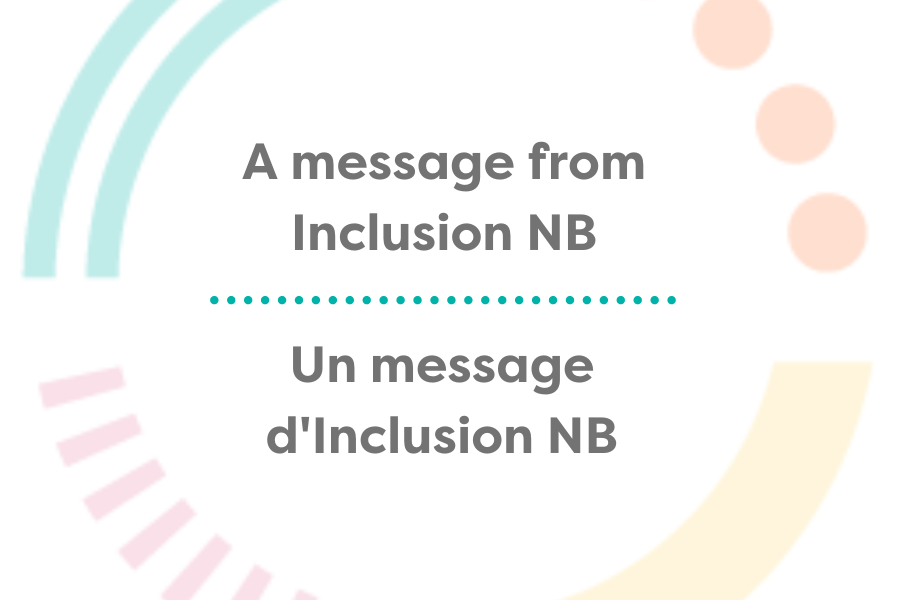
February is national Inclusive Education month and an ideal time to reflect on all that has been accomplished and what lies ahead.
In 1985, a ground-breaking legal case, led by a formidable group of three Saint John families was underway. At that time, the New Brunswick Schools Act prevented their children from attending regular classes in school. These parents began the first Charter challenge in Canada in the field of education. In 1986, the government introduced amendments to the Act which required students with disabilities to be educated in the regular education system.
Inclusive education was born, not only in New Brunswick, but also in Canada.
In 2013, the inclusion movement experienced another significant milestone. This was the implementation of Policy 322 – Inclusive Education, by the Department of Education and Early Childhood Development. Well-researched and evidence based, it is based upon the premise that education is a fundamental human right.
Specifically, in New Brunswick, it is the right of every child to learn alongside their peers in their neighborhood school. This is the very cornerstone of Policy 322.
We know that inconsistencies in understanding and effectively implementing this policy exist. This is largely because many educators– teachers, administrators, educational assistants- still have not been adequately trained in inclusive practices or are not afforded the resources they require to support the needs of the entire classroom. We have phenomenal leadership in our schools and teachers that care deeply about the success of all their students. They need our support.
Unfortunately, one of the scapegoats of our overburdened education system is often inclusive classrooms. When there are challenges, we blame inclusion policies, and ultimately the child with a disability, as if this is the problem.
Imagine for a moment you are a parent of a student with a disability. Your child has been forced to leave the school or can only attend school for an hour or two a day. How could you work? How is your child socializing and gaining valuable skills through interacting with their peers?
Or imagine your child’s Education Assistant is not able to be at work due to illness, for example, and are told they need to stay home because the proper supports are not in place. We would never ask this of the parents of children without disabilities.
And perhaps worst of all, to learn that your child has been secluded or isolated during their school day. Despite our advances in inclusive education, this still happens in New Brunswick.
Resources must be available to teachers, schools and classrooms and properly deployed and in a timely manner. That includes training for educators and paraprofessionals, access to specialists such as speech language pathologists, school psychologists etc., as well as smaller class sizes, just to name a few.
The team surrounding the student must be supported to work together to create a plan with the primary goal of having all students in the classroom, properly supported, to learn alongside their peers. This is their right.
This team also includes students without disabilities. Our province’s leadership 40 years ago means that now, there is an entire generation of New Brunswickers who have benefited from and expect inclusion.
A study on the outcomes of Inclusive education from Australia points to “improved attitudes between students who do and do not experience disability. The more time a student spends within an inclusive setting, the greater the social interaction. In turn, this leads to better outcomes for social and communication development.”
The growing body of research into the outcomes of inclusive education for social development has also found that inclusion results in “a more positive sense of self and self-worth for students who do and do not experience disability”.
These are the leaders we will rely on to keep the inclusion movement moving forward for the next 40 years.
We need them as there is still more work to do. For example, we still lack a provincial policy on inclusive early learning and childcare to ensure families of children with a disability have equal access before they enter the public school system. These children and their parents also have rights.
As New Brunswickers, we should be very proud of what we have built, together. Three families in Saint John created a provincial, national, and international movement that was an important step forward. We owe it to them, and the countless families that followed, to focus on how we build the next generation of learners and inclusion champions.
– Jake Reid, Executive Director of Inclusion NB
